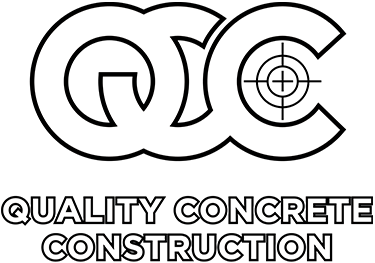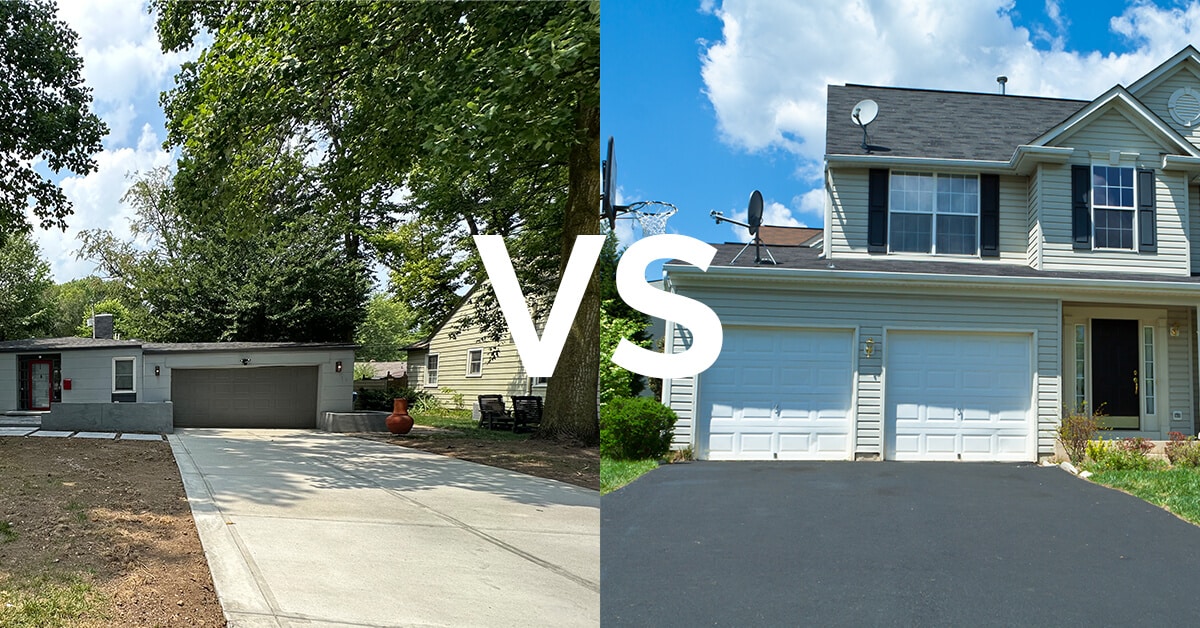When your driveway starts to crack, split, or sag, it’s time for a replacement. However, choosing between concrete vs. asphalt for your new driveway can be a significant decision. As is always the case, both materials offer distinct advantages and drawbacks. Once you understand their differences, you can make an informed choice tailored to your needs and preferences. Today, we’ll dive into the details of a concrete driveway vs. an asphalt driveway.
Concrete Driveway:
Pros:
Durability: If your priority is durability, concrete is the way to go. It can withstand heavy loads and is less prone to cracking under pressure compared to asphalt.
Longevity: Though it is an investment, concrete goes the distance. With proper maintenance, a concrete driveway can last up to 30 years or more, providing a lasting benefit for your property.
Aesthetic Appeal: When you picture concrete, don’t just imagine a beige slab – this material offers versatility in design and color options. It can be stamped, stained, or textured to complement your home’s architecture and landscape.
Cons:
Cost: When it comes to concrete vs. asphalt cost, concrete will initially be more expensive than asphalt. Price will vary according to the complexity of the project and the customization you desire.
Maintenance: While durable, concrete may require periodic sealing to protect against stains, weathering, and cracks. Over time, repairs can be more complicated and costly.
Asphalt Driveways:
Pros:
Affordability: When you’re comparing concrete vs. asphalt costs, asphalt will win. It tends to be more budget-friendly (at least initially), making it an attractive option for homeowners with cost constraints.
Installation Time: Because asphalt driveways can often be installed more quickly than concrete ones, you’ll minimize disruption to your daily routine during installation.
Repairs: While maintenance is necessary, repairing minor issues like cracks or potholes on an asphalt driveway is generally easier and more cost-effective than with concrete.
Cons:
Durability: Because asphalt is prone to softening in high temperatures, your asphalt driveway can develop cracks and potholes more easily over time compared to concrete.
Lifespan: Though you’ll pay less for an asphalt driveway, it will typically have a shorter lifespan. Asphalt driveways average around 20 years of use with proper maintenance, so you’ll need to replace them more often than concrete.
How to Choose a Concrete vs. Asphalt Driveway
First, consider your local climate. Because concrete withstands extreme temperatures better, it’s a good choice for an area with fluctuating weather. However, if your climate is mild year round, asphalt could be a good choice.
In addition, consider how able and willing you are to invest time and money in maintenance. Asphalt may require a smaller price upfront, but will you have the funds to put toward replacement and maintenance later?
Finally, think about the aesthetic of your home. Concrete can offer attractive customization options to help blend with your home’s unique look and feel, so the driveway feels like a cohesive part of the architecture.
When you’re considering concrete vs. asphalt cost, don’t just think about the short term. Though the initial cost of asphalt can be lower, concrete may prove more cost-effective in the long run when factoring in maintenance, repairs, and longevity.
Consult the Experts
Quality Concrete Construction has been installing quality concrete driveways for over 20 years. We’ve seen the durability, longevity, and attractiveness of concrete driveways, and we’d be happy to talk more about their benefits! Reach out to us for a consultation today.

